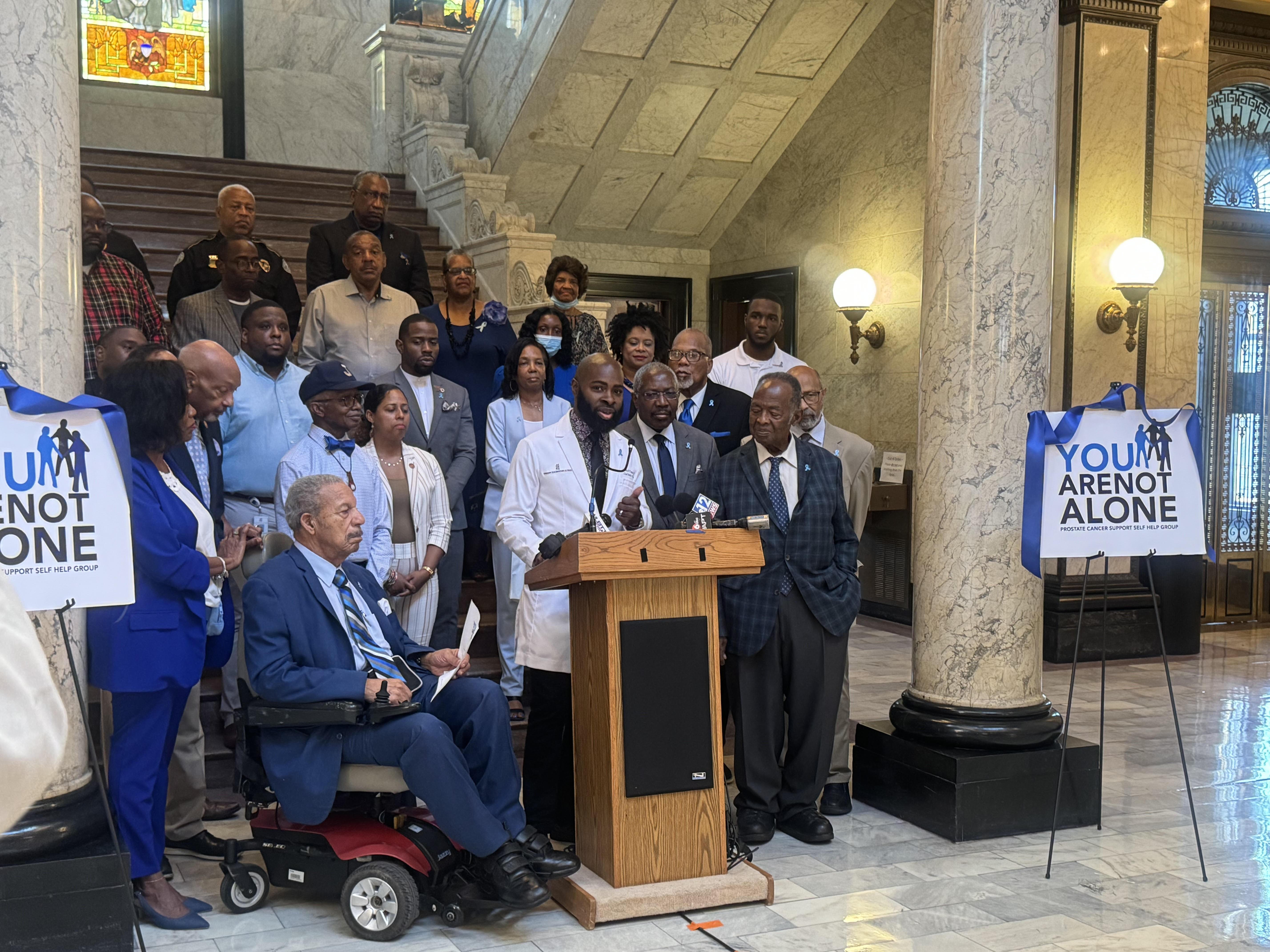A small crowd of cancer survivors, health experts and loved ones dressed in blue lined the steps of the capitol rotunda Wednesday as State Senator John Horhn stood before a podium.
Mississippi ranks second in the nation for prostate cancer mortality


A small crowd of cancer survivors, health experts and loved ones dressed in blue lined the steps of the capitol rotunda Wednesday as State Senator John Horhn stood before a podium.

Shamira Muhammad
Mississippi ranks second in the nation for prostate cancer mortality
“Good morning, and welcome to your state capitol,” he said. “We are here today on behalf of the You Are Not Alone Foundation to promote Prostate Cancer Awareness and the need for men to get checked.”
September marks prostate cancer awareness month. According to health experts, Mississippi has some of the worst health outcomes for the disease in the nation.
Dr. Justin Turner is the Chief Medical Officer with the Mississippi Department of Health.
“We're not excited about the fact that here in Mississippi, we ranked second as far as prostate cancer mortality,” he said. “We're not excited about the fact that here in Mississippi, we have the third highest incidence. That's folks being diagnosed with cancer in the nation. We're not excited to know that black men are 2.5 times more likely to die from prostate cancer, compared to everyother ethnicity.”
The death rate among men in Mississippi diagnosed with prostate cancer reached an all time high in 2021. Health officials say that was the highest prostate cancer mortality rate over the past ten years.
Screening for prostate cancer involves what is called a prostate-specific antigen test, otherwise known as a PSA. Blood is drawn from a patient to check for cancer and Dr. Turner says early detection is important. Statistics show the rate of prostate cancer in Black men is more than double that of White men.
Dr. Turner said that many men feared getting screened for prostate cancer because of a digital exam that he says is no longer required.
“A lot of men have refused to go to the doctor because they don't want to get that finger,” he said. “But the United States Preventive Task Force no longer recommends the finger test to screen for prostate cancer.”
Dr. Turner says family history is extremely important to take into account when getting screened for prostate cancer.
“I had an uncle. [We] made sure he got tested and found out he had prostate cancer. He got the surgery. He was prostate cancer free after that,” he said. “I have a first cousin who was in his 40s who did the blood work. He had prostate cancer. He got treatment. He's 100% cured from it. And I myself am going to get tested as well every year to make sure that I don't get [cancer].”
Several members of the crowd had personal stories of battling prostate cancer. Jerry Knight is the founder of the “You Are Not Alone Foundation.”
“I'm a nine year prostate cancer survivor,” he said. “For September prostate cancer awareness month, we wear blue.”